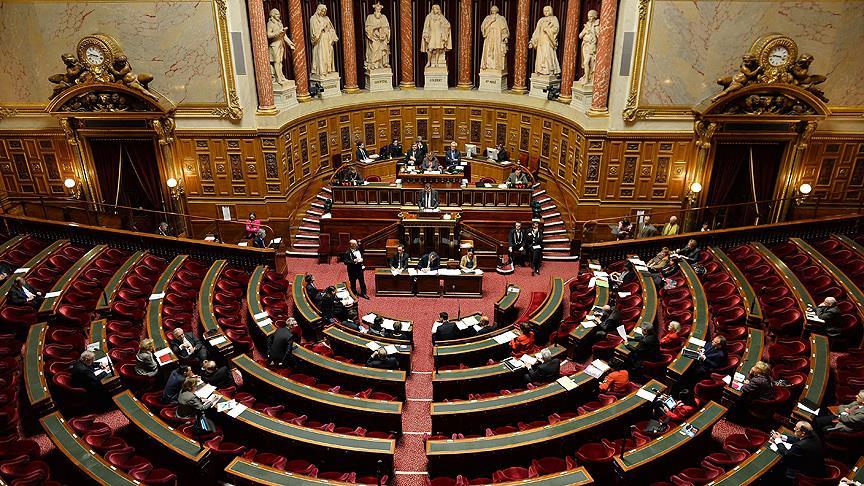At the Holy Mass on 12 April 2015 which was led by Pope Francis at the Vatican to commemorate the 100th anniversary of the 1915 events, the Pope’s description of the 1915 events as “widely considered the first genocide of the twentieth century” caused an international stir. While the Pope’s remarks was welcomed in Armenia and the diaspora, Turkey reacted negatively. Additionally, Pope’s remarks sparked debates in several countries.[1]
On the other hand, an opinion claiming that the 1915 events were not ‘the first genocide of the twentieth century’ was put forward. According to this opinion, the massacres committed by German colonists against the Herero and Nama people in the German colony of South-West Africa (modern-day Namibia) were the first genocide of the twentieth century.
Between 1904 and 1908, these two ethnic groups which rebelled against German colonial rule, were massacred by German colonists and later many people were subjected to severe maltreatment in concentration camps. It is reported that around %80 of the Herero people and %50 of the Nama were exterminated and in total, 75,000 people were killed.
The fact that Pope Francis did not mention the massacres against the Hereo and Name people led to various reactions. In his article published in the Britsh newspaper The Guardian, David Olusoga, a British-Nigerian historian, claimed that the Herero and Nama massacres were the first genocide of the twentieth century.[2] Indicating that an extermination order was issued by the German commander Lothar von Trotha, he emphasized that many people were subjected to torture, experiments and were killed in the process. He pointed out that this was an accepted fact in Africa and even in Germany and he added that the German government apologized in 2004.[3] Olusoga also touched upon the sensitivities of Africans on such matters and criticized the Pope for not mentioning these massacres.
In several German newspapers, while the Pope’s remarks on the ‘Armenian Genocide’ were welcomed, the massacres committed by European colonists were pointed out. It was stated that the Herero and Nama massacres were the first genocide of the twentieth century.[4]
The Pope’s characterization of the 1915 events as genocide despite not being historically and legally proven and the fact that he ignored the Herero and Nama massacres which was one of the most brutal massacres of the twentieth century holds importance as it shows that he is not competent enough to talk about such matters. The Pope should have not ignored the Herero and Nama massacres which is claimed to be the first ‘genocide’ of the twentieth century and he should have shown the necessary awareness to the sufferings of these African people. This is also important as it shows the extent the Pope was influenced by the Armenian discourse.
The fact that the Pope did not mention Herero and Nama massacres and the sufferings of Muslims during and prior to First World War, his reference to the events that took place in Bosnia and Rwanda as ‘mass killings’ despite being recognized as genocides by competent international courts, and his description of the 1915 events as ‘genocide’ reveal many contradictions in the Pope’s statement.
Such statements unfortunately damage the prestige of Vatican, which is supposed to be on the side of justice, common sense and truths in terms of its religious and institutional definition. Pope Francis who holds an important position should have been much more careful on such sensitive issues.
[3] In 2004, the then-Minister for Economic Development and Cooperation of Germany, Heidemarie Wieczorek-Zeul recognized Herero and Nama massacres as genocide and apologized on behalf of the German government. However, the German government refused to pay reparations. http://www.theguardian.com/world/2004/aug/16/germany.andrewmeldrum (last acess 12.05.2015).
© 2009-2025 Center for Eurasian Studies (AVİM) All Rights Reserved

 GERMANY AT THE FOREFRONT OF ANTI-TURKISM
GERMANY AT THE FOREFRONT OF ANTI-TURKISM
 THE DRAFT RESOLUTION APPROVED BY THE POLITICAL AFFAIRS COMMITTEE OF PACE
THE DRAFT RESOLUTION APPROVED BY THE POLITICAL AFFAIRS COMMITTEE OF PACE
 FRANCE ADAMANT IN COUNTERING TURKEY
FRANCE ADAMANT IN COUNTERING TURKEY
 THE AFTERMATH OF THE DENIAL OF TERRORIST SASSOUNIAN’S PAROLE
THE AFTERMATH OF THE DENIAL OF TERRORIST SASSOUNIAN’S PAROLE
 STATEMENTS BY THE ROMANIAN AMBASSADOR IN ARMENIA
STATEMENTS BY THE ROMANIAN AMBASSADOR IN ARMENIA
 BOSNIA-HERZEGOVINA ELECTION RESULTS SIGNAL ROUGH CHALLENGES FOR EU DESIGNS IN THE BALKANS
BOSNIA-HERZEGOVINA ELECTION RESULTS SIGNAL ROUGH CHALLENGES FOR EU DESIGNS IN THE BALKANS
 TURKEY’S MEDIATOR ROLE IN THE RUSSIA-UKRAINE WAR
TURKEY’S MEDIATOR ROLE IN THE RUSSIA-UKRAINE WAR




























